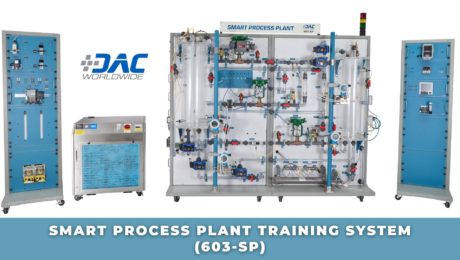Biotech has the Potential to Revitalize U.S. Manufacturing
The history of manufacturing in the United States covers more than a century and contains more ups and downs than the most thrilling roller coaster in any theme park. For many years, particularly those decades after the end of World War II, the U.S. led the world in manufacturing output and innovation.
Beginning in the 1980s, however, historians note a steady decline in American manufacturing as the U.S. moved toward a service-based economy and other countries around the world began to offer cheaper production options. The last few years since the COVID-19 pandemic have seen a resurgence of manufacturing in the U.S.
Will it continue? Experts believe that it can indeed continue, and one of the areas that could spur the most new jobs might surprise some: biotech. In a recent IndustryWeek article, author Douglas Friedman sets forth his belief that “we have a unique opportunity to leverage exciting advancements in biotech to bring back and diversify wide swaths of manufacturing production.”
Friedman explains that “[b]ioindustrial manufacturing uses biological systems—including microbes such as bacteria, yeast, and algae—to produce new materials or sustainable alternatives that are incorporated into products we use every day, like bio-based cement, plant-based nylon, and lab-grown cocoa.”
According to Friedman, by continuing “the development of innovative biotechnologies that improve our health, food and environment…the U.S. can become the world leader in bioindustrial manufacturing, creating millions of jobs in the process.”
In fact, the U.S. is already seeing benefits from bioindustrial manufacturing. Friedman points out that bioindustrial manufacturing already accounts “for roughly $440 billion added to our bioeconomy as of 2019 and 1.65 million jobs created by the bioproduct industry as of 2017.” As this sector grows, Friedman estimates that “[e]ach additional 1% of the market share brought to the U.S. through bioindustrial manufacturing would add $60 billion to the U.S. economy.”
While biotech holds great potential for expanding U.S. manufacturing, hurdles remain, including a significant one facing all manufacturers: finding skills workers to fill open positions. Workers in bioindustrial manufacturing facilities will need hands-on skills working with advanced automation technologies, as well as process control and instrumentation equipment.
Fortunately, employers don’t have to reinvent the wheel when it comes to effective process control and instrumentation training. Partnering with a training solutions provider with a proven track record can help any manufacturer or educational institution train workers with the hands-on skills they’ll need to hit the ground running in the workplace.
For example, DAC Worldwide offers a wide variety of training systems that teach basic to advanced process control and instrumentation skills. Its newest flagship process control and instrumentation trainer, the Smart Process Plant Training System (603-SP), is a fully-functional, industrial-quality fluid process system that provides hands-on training in the measurement and control of five of the most common process variables: level, pressure, temperature, flow, and pH.
The system groups these process control elements into one complete piping system, which allows it to teach multiple configurations of flow loops, controls, and communications. The system incorporates both new and legacy technologies so that users are prepared for anything they might encounter on the job.
The Smart Process Plant Training System features a wide variety of common, industrial-quality components and instruments to provide learners with a realistic training experience that will build skills that translate easily to the workplace. The Smart Process Plant also includes multiple experiments, which simulate both continuous and batch process control loops that are widely used in many process industries. These experiments include:
- Basic and Advanced Bioreactor Applications
- Clean-In-Place (CIP) Skid Application
- Boiler Drum Level Application
- Wastewater Treatment Application
The Smart Process Plant Training System is only one of DAC Worldwide’s many process control and instrumentation training systems. Visit DAC Worldwide online to learn more about its many other training systems!
- Published in News
DAC Worldwide’s Smart Process Plant Offers Unparalleled Process Control Training
Many different types of manufacturing processes depend upon the carefully-controlled movement of fluids, such as liquids and gases, through a complex system. That’s why process control and instrumentation are vital parts of many major industries, including: power generation; petrochemicals; food processing and bottling; chemical manufacturing; biotechnology; pharmaceuticals; refineries; and more.
For example, a recent IndustryWeek article by Gerry Abbey and Lance Heinen details the “journey to embrace smart manufacturing technology” made by “Texas’s largest pickle manufacturer,” Best Maid Pickles. “Founded in 1926, Best Maid Pickles” sought to improve productivity and efficiency as the organization continued to expand its operations.
The authors note that, “[a]cross the food and beverage industry, the adoption of smart manufacturing technologies, while extremely desirable, has been slowed by concerns around cost, lack of knowledge and lack of skills.” However, with proper research and strategic implementation, these technologies can transform a business.
Best Maid Pickles stands as a perfect example of such transformation. As the authors conclude, “the Best Maid Pickles journey illustrates how embracing smart manufacturing technology can drive efficiency, productivity and profitability…The implementation delivered a significant ROI through reduced costs and increased revenue, empowering Best Maid for sustained growth and success.”
The authors believe that, “[b]y leveraging technology, companies can position themselves for a thriving future in the ever-evolving manufacturing landscape.” The journey will not be without its challenges, however, and those must be anticipated and tackled head-on.
One common challenge when implementing new advanced automation technologies is the need for highly skilled workers to operate, maintain, troubleshoot, and repair these new systems. Whether a company decides to search for new employees with the skills they need or train current employees to equip them with necessary skills, employers must focus on ensuring workers possess the hands-on process control and instrumentation skills they require.
Fortunately, employers don’t have to reinvent the wheel when it comes to effective process control and instrumentation training. Partnering with a training solutions provider with a proven track record can help any manufacturer or educational institution train workers with the hands-on skills they’ll need to hit the ground running in the workplace.
For example, DAC Worldwide offers a wide variety of training systems that teach basic to advanced process control and instrumentation skills. Its newest flagship process control and instrumentation trainer, the Smart Process Plant Training System (603-SP), is a fully-functional, industrial-quality fluid process system that provides hands-on training in the measurement and control of five of the most common process variables: level, pressure, temperature, flow, and pH.
The system groups these process control elements into one complete piping system, which allows it to teach multiple configurations of flow loops, controls, and communications. The system incorporates both new and legacy technologies so that users are prepared for anything they might encounter on the job. These technologies work together to form a 3-level communication architecture:
- Device Level: Smart sensors monitor Level, Flow, Temperature, Pressure, and pH. They are connected via either IO-Link and Ethernet communication or HART communication.
- Control Level: A DCS and various PLCs and PIDs allow for operation and control of the system’s components.
- Enterprise Level: The DCS software provides Supervisory Control with data analytics for monitoring smart production, smart maintenance, etc.
The Smart Process Plant uses a Distributed Control System (DCS) that features Supervisory Control software. This software is Rockwell Automation’s PlantPAx, and it acts as the backbone of the system. It gathers and organizes data and creates dashboards that represent the real-time status of the processes being carried out by the system.
The Smart Process Plant Training System features a wide variety of common, industrial-quality components and instruments to provide learners with a realistic training experience that will build skills that translate easily to the workplace. The Smart Process Plant also includes multiple experiments, which simulate both continuous and batch process control loops that are widely used in many process industries. These experiments include:
- Basic and Advanced Bioreactor Applications
- Clean-In-Place (CIP) Skid Application
- Boiler Drum Level Application
- Wastewater Treatment Application
With these experiments, learners will explore a wide variety of fundamental process control topics, including: temperature, level, flow, pressure, and pH ratio control; agitation; sequence control; continuous control; 3-element control; feed forward/cascade control; and pump lead/lag demand. The Smart Process Plant Training System is only one of DAC Worldwide’s many process control and instrumentation training systems. Visit DAC Worldwide online to learn more about its many other training systems!
- Published in News
Pump It Up! A Primer on the Importance of Pump Maintenance
When you hear the phrase, “pump the jam” your mind could be drawn – if you are of a certain age – to Technotronic’s 1989 club hit “Pump Up the Jam.” But you could also be a machine operator in a jam factory where pumps are used in the production process and must be routinely maintained due to jam viscosity, seeds and fruit chunks, and the sugary buildup on seal faces in sealed pumps.
In addition to jam factories, pumps are used across industry for water movement, chemical processing, and fluid management, as well as for moving harsh, corrosive, or heavy-duty substances. These fundamental components are utilized in agriculture, food and beverage, mining, petroleum, power generation, and pharmaceutical applications to move everything from wastewater to petroleum, sludges to slurries, dairy products to wine, and on and on. Pumps come in an assortment of types and configurations and industry uses a variety of them, such as turbine, piston, and gear pumps.
The most widely used pump across industry is the centrifugal pump, which is a dynamic pump, meaning it adds kinetic energy to the substance that increases the fluid speed and creates pressure. As expected with any kind of mechanical component subjected to constant pressure and operation, wear and tear of pumps is inevitable. However, with a solid understanding of the most common problems occurring from prolonged pump operation and a routine maintenance plan, full scale pump failure and costly production shut downs can be avoided. The most prominent problem with pumps that routine maintenance can prevent is cavitation.
What is Cavitation?
In relation to pumps, cavitation is the phenomena where vacuum bubbles form within fluid being moved through a system. When these bubbles – or voids – collapse they create shockwaves. Over time and repeated use, these shockwaves create premature wear on a pump impeller and lead to component failure if no maintenance is performed. Not only does cavitation lead to component failure, but when present it is extremely noisy and causes vibrations, which results in a loss of process efficiency.
In addition to cavitation, common things that technicians should watch for on industrial pumps include bearing and lubricant condition, shaft seal condition, pump vibration, and pump discharge pressure.
What Pump Maintenance Tasks Can Prevent Cavitation and Pump Failure?
As with any machine, consistent maintenance is key to process efficiency and prevention of equipment failure. In pumps, maintenance can extent equipment life, decrease operating and costs, and prevent specific component ills like cavitation. Generally, it’s recommended to group your maintenance program into three categories: routine, quarterly, and annual. Examples of tasks to track and check include adding oil to the bearing reservoir, cleaning and oiling governor linkages and valve stems, and inspecting disc couplings.
But how can you ensure that maintenance technicians and operators at your facility have the know-how to perform these tasks correctly?
DAC Worldwide’s Pump Maintenance and Operation Training Systems
DAC Worldwide offers an array of options for up-skilling or assessing your employees for pump maintenance and operation, including:
Centrifugal Pump Fundamentals Training System Plus (227-PAC)
The Centrifugal Pump Fundamentals Training System Plus (277-PAC) offers hands-on training for basic centrifugal pump operation and maintenance. This system can be used to demonstrate pump cavitation, fundamental operational principles, and the effects on flow and pressure by varying static head and piping configuration. The Centrifugal Pump Fundamentals Training System is a perfect solution for introductory operations and maintenance courses related to centrifugal pumps and process systems.
This system features a centrifugal pump with an open impeller, a variable speed DC pump motor with a controller, and a modular, clear PVC piping system with a variable-height support structure that allows for multiple configurations of the tank, pump, and motor to create new flow and static head conditions. The system also offers optional pipe spool variations to create even more process flow conditions.
Pump Maintenance Training System Plus (275-PAC)
DAC Worldwide’s Pump Maintenance Training System Plus (275-PAC) is a benchtop training device featuring a standard ANSI centrifugal pump mounted on a heavy-duty, 7-gauge, formed-steel, powder-coated baseplate. This systems features real-world pump components for practicing the disassembly, packing, and reassembly of common centrifugal pumps, as well as common pump maintenance such as impeller clearance adjustment and mechanical seal replacement. This system also features a clear acrylic backhead for visibility of the seal area.
Pump Maintenance and Alignment Training System Plus (275E-PAC)
The Pump Maintenance and Alignment Training System Plus (275E-PAC) is a benchtop training system featuring a standard ANSI centrifugal pump and a simulated motor element. This combination along with a replaceable ¾-in. diameter steel shaft with keyways allows users to practice shaft alignment skills. Further, the motor element features flanged bearings that can be adjusted to allow for angular and parallel misalignment. This system also allows users to practice complete pump tear-down and assembly. The Pump Maintenance and Alignment Training System also features a clear acrylic backhead to show pump packing procedures and the installation of mechanical seals.
Additionally, DAC Worldwide has dissectibles, component cutaways, and sample boards for expanded industrial pump training. DAC’s sister company, Amatrol, also offers pump systems that can bolster your industrial training program.
Amatrol’s Centrifugal Pump Learning System (950-PM1) and Expansion Systems
Amatrol’s pumps learning systems cover industry-relevant skills including how to operate, install, maintain, troubleshoot, and select a variety of pumps, as well as system design. The base learning system features a centrifugal pump, but allows for the use of several different pumps for expanded training; these pumps include: parallel pumps, turbine pump, diaphragm pump, peristaltic pump, piston pump, gear pump, magnetic pump, and centrifugal pump with stuffing box.
- Published in News
DAC Worldwide’s 4-Variable Process Control System: The Ultimate Instrumentation Training Tool
Let’s say on the way to pick up you prescription at the drug store, you stop at the gas station, fill up your tank, and pick up a cold soda pop. By the time you get home, you’ve interacted with at least three products that use process control and instrumentation in their creation. Oil and gas, pharmaceuticals, and food and beverage are only three of the countless number of industries that rely on process control and instrumentation to produce their goods.
What is process control and instrumentation?
According to the Process Industry Informer’s Phil Black, “Process control is used in continuous production – in manufacturing and in other fields and industries where some kind of material is produced without any kind of interruption – as well as in ‘batch processing.’ It’s used to automatically control the conditions in which a product is made – ensuring better quality and efficiency.”
 And the applications of these processes are only getting started. According to Amatrol’s Duane Bolin, “Process control is big business all over the world. The global economic value of the process control systems market is estimated to be more than $120 billion. This value will only continue to grow as automation and Industry 4.0 technologies enable process control systems to further increase the productivity and efficiency of manufacturing facilities.”
And the applications of these processes are only getting started. According to Amatrol’s Duane Bolin, “Process control is big business all over the world. The global economic value of the process control systems market is estimated to be more than $120 billion. This value will only continue to grow as automation and Industry 4.0 technologies enable process control systems to further increase the productivity and efficiency of manufacturing facilities.”
Why is process control important?
Much like its applications, the importance of process control is nearly limitless in industry, but here are three major reasons:
-
Improved Process Efficiencies
Process control allows for improved process efficiencies because the data produced by sensors can be analyzed resulting in more effective decisions.
-
Limited Staff
Because processes can be automated, a small staff of operators can control the most complex processes from a central location.
-
Ensures Safety
Manipulating substances to produce a product is a very demanding and potentially hazardous process. The controlled environments and components within process control limit danger to operators.
How do I set up process control training for our school or industry training center?
So you have a workforce or classroom full of people that need to be upskilled on process control and instrumentation practices. Where do you begin? Technical training innovators like Amatrol, DAC Worldwide, Bayport, and Pignat offer a variety of concentrated, single-topic options for process control training like Amatrol’s Temperature (T5553) or Pressure (T5555) systems, DAC Worldwide’s Calibration Training (616-000) system, Bayport’s Flow Level Trainer (120-CFLCD), or Pignat’s Gas-Liquid Absorption (ABS/2000) system. However, there is one system that not only offers hands-on skill building across all forms of instrumentation training, but is also customizable to an almost limitless degree to exactly meet your training needs:
DAC Worldwide’s 4-Variable Advanced Process Control Training System (603-000)
DAC Worldwide’s 4-Variable Advanced Process Control Training System (603-000) allows candidates to build hands-on skills in flow, level, pressure, and temperature process control applications. This system features an open physical architecture and wiring design, which allows for incredible adaptability and customization. This system can be configured to meet almost any process control training need or industry application and allows you to modify it as needs or technology changes.
The large size of the system and more complex measurement and control environment enables for PLC and DCS control systems, which means it can be set up for one large complex loop or two individual loops. This system can also feature Hart, Foundation Fieldbus, and Profibus communication systems.
The DACW 4-Variable Advanced Process Control Training System can be used for everything from interpreting PNID drawings, to teaching system walkdowns and PID control methodology, to the creation and maintenance of instrument loops, as well as large-scale system troubleshooting. This instrumentation training system includes a dynamic and complex piping system with a PID on each side, which allows for experiments in true cascade control – a topic that is uniquely covered by the 603-000 in the technical training industry.
There are also instrumentation packages – including Endress Hauser, Rosemount, & Honeywell – available to fully meet the training needs that most closely resemble the equipment you’ll see in your company or local industry.
Even More Process Control Option from DAC Worldwide!
If 4-Variable Advanced Process Control Training System is a bit more than what your training program needs, DAC Worldwide offers a full line of process control and instrumentation options. Some of these include single-topic options such as Analytic Process Control (605-000), Temperature Process Control (602-PAC), and a PID Controller Trainer (608-000).
How Can DAC Worldwide Help Your Training Program?
With more than four decades of experience in industrial training, DAC Worldwide’s reach extends far beyond just electrical products. In fact, DAC Worldwide possesses knowledge and expertise in a wide range of technical topics, including Electronics, Fluid Power, Heat Transfer & Steam, HVAC, Machining & Measurement, Mechanical Drives, Oil Production, Process Control & Instrumentation, and Pumps, Compressors & Valves.
Our training aids range from training systems and sample boards, to models and dissectibles – with real-world, hands-on learning being the core of each product. For more information on how DAC Worldwide can enhance your industrial training program and provide you with the best training solutions available, please click here.
- Published in News






